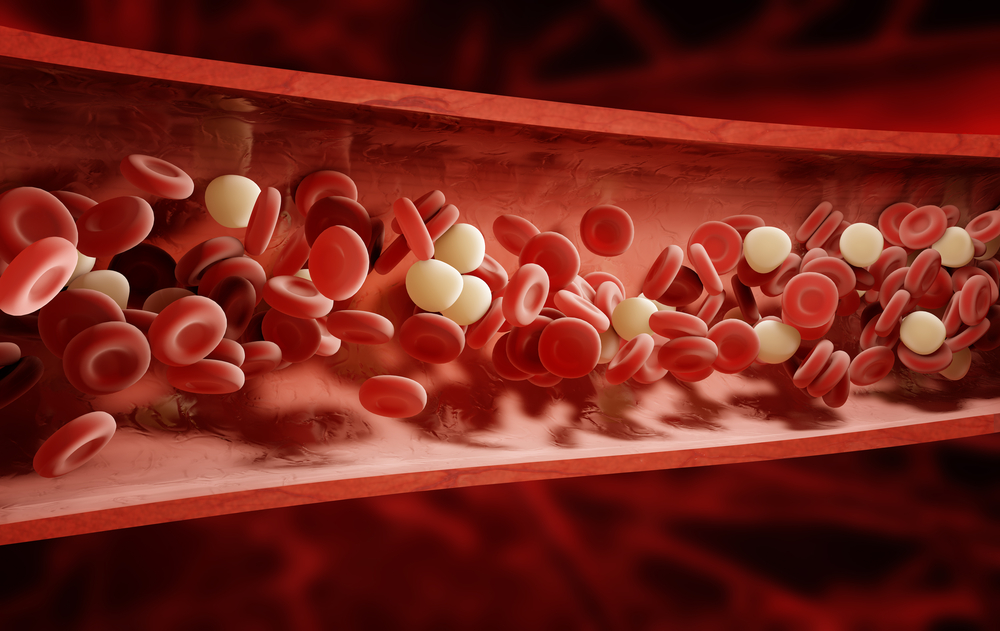Human Blood-brain Barrier in a Chip, Created in the Lab, May Help Design New Therapies, Study Shows

By tweaking stem cells in a laboratory, researchers were able to generate a model of the human blood-brain barrier (BBB) in a chip. The BBB is a highly selective barrier that is damaged in multiple sclerosis (MS), allowing immune cells to reach the central nervous system and damage neurons.
The BBB in a chip — a living, micro-engineered environment that recreates the natural physiology and mechanical forces that cells experience within the human body — will help scientists to further study the mechanisms underlying the blood-brain barrier’s malfunctions in MS and other disorders. This may help researchers to design new therapies that more easily target the brain.
The study, “Human iPSC-Derived Blood-Brain Barrier Chips Enable Disease Modelling and Personalised Medicine Applications,” was published in the journal Cell Stem Cell.
The central nervous system (CNS), which comprises the brain and spinal cord, is protected from the circulatory blood system by the BBB, a network of blood vessels. Its function is crucial because it protects the CNS from viruses, bacteria, fungi, and other potential toxins and damaging agents. However, the BBB also can stop needed medicines from entering the brain.
A defective BBB is associated with neurological disorders, including MS. When damaged, this barrier can no longer prevent immune cells and large molecules from entering the CNS, which may trigger inflammation, and damage to neurons.
Creating a laboratory model of the human BBB would be beneficial in the study of MS and other brain disorders. It also would aid in the development of new therapies, including patient-tailored treatment, or so-called personalized medicine.
Researchers at the Ben-Gurion University of the Negev (BGU) in Israel and Cedars-Sinai Medical Center in Los Angeles genetically manipulated human blood cells to convert them into a specific type of stem cell — called induced pluripotent stem cells (iPSCs) — that can generate almost any type of cell in the body.
The iPSCs were then used to generate the different types of cells that make up the BBB, including endothelial-like cells (those lining the inside of blood vessels), neurons (nerve cells), and astrocytes. Astrocytes are a group of star-shaped cells (belonging to the group of glial cells) that provide neurons with energy, and work as a platform to clean up their waste. They also have other functions within the brain, like regulating blood flow and inflammation.
Researchers then placed the different cells types on a chip, called Emulate — approximately the size of an AA battery — that has tiny channels lined with tens of thousands of human cells. The environment in the organ chip replicates the physiology and mechanical forces that occur in the human BBB.
The cells in the Emulate chip performed interactions in the same way as those seen in the in vivo (in the body) BBB, the researchers found.
Tests showed that the BBB-on chip was functional, blocking the entry of certain therapies and proteins. Moreover, known medicines capable of penetrating the human BBB, like the anti-epileptics levetiracetam and retigabine, were able to penetrate the BBB-on chip.
“The diffusion of these molecules across the iPSC-based BBB-Chip demonstrated the expected differences in permeability, suggesting that this model can predict human CNS drug penetrability,” the researchers said.
They used cells from patients with specific brain diseases, such as Allan-Herndon-Dudley syndrome, a rare disorder of brain development, and Huntington’s disease, a neurodegenerative disorder, to create specific BBB-on chips. The barrier malfunctioned in the same way that it does in patients, showing that these models retained the altered permeability seen in people with the diseases.
“By combining organ-chip technology and human iPSC-derived tissue, we have created a neurovascular unit that recapitulates complex BBB functions, provides a platform for modeling inheritable neurological disorders, and advances drug screening, as well as personalized medicine,” Gad D. Vatine, professor and researcher at Ben-Gurion University and the study’s first author, said in a press release.
“BBB-on-chips generated from several individuals allows the prediction of the best suited brain drug in a personalized manner. The study’s findings create dramatic new possibilities for precision medicine,” Vatine added.






